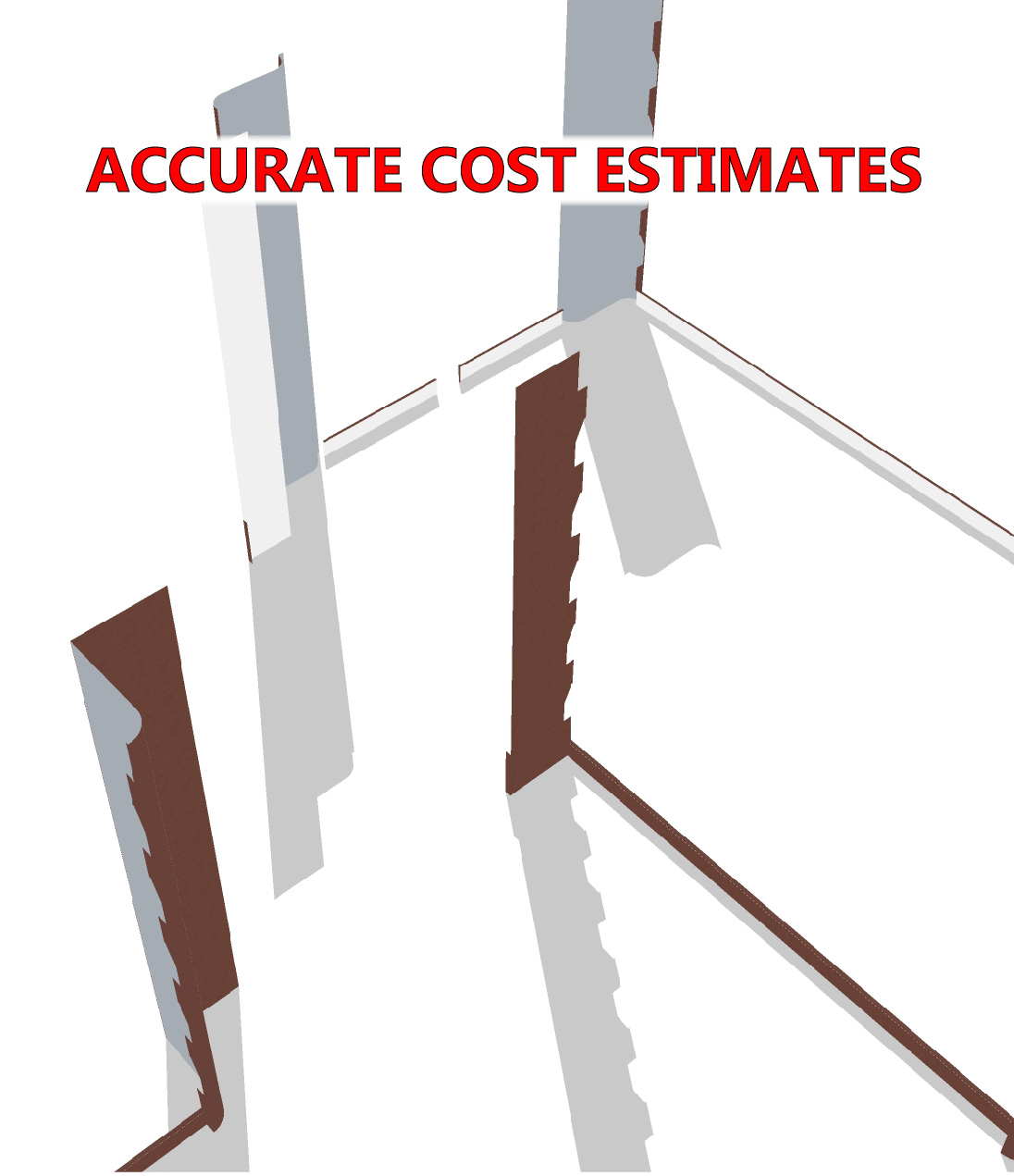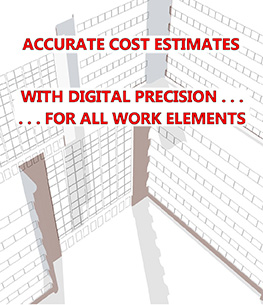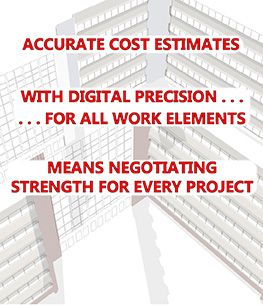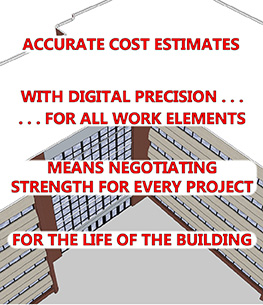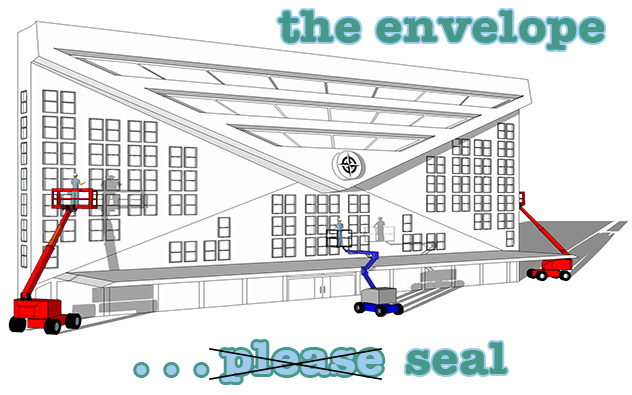Mortar for Brick, Block and Concrete
Repointing and repair mortar has to be properly formulated for compressive strength, color, texture and other qualities. Several of the companies cited on this page are sources for these products and the services that may be required in order to specify them.
Mortar Types
The American Society for Testing and Materials (ASTM) has designated five mortar types (ASTM C270) and a corresponding recommended mix for each. The letters identifying each are every other letter from the words MASON WORK with the highest strength mortar being designated by the first letter “M” and the lower compressive strength designations following. Type K remains in the list although it is seldom used today, except for some historic preservation projects. It has the highest lime content of the mixes that contain portland cement. The designation “L” identifies a straight lime and sand mix (in a 1:2 ¼ to 1:3 ratio). Specifying the appropriate ASTM mortar by proportion of ingredients, will ensure the desired physical properties.
Type M: highest compressive strength
Type M mortar is the highest strength mortar (minimum 2500 psi) and should only be used where that characteristic is required. Because of its strength this type of mortar is used with stone where extreme gravity or lateral loads are present, such as in retaining walls and other below grade applications. If the wall is sufficiently stressed, generally the masonry unit (stone) will fail before the mortar.
Type M mortar is 4 parts cement, 1 part hydrated lime and 12-15 parts sand
Type S: medium compressive strength (for walls with normal to moderate loading)
Type S is sometimes specified for masonry at or below grade. S mortar compressive strength is 1800 psi. It has high tensile bond strength and yields good flexural strength for resistance to wind, soil pressure or wall movement.
Type S mortar is 2 parts portland cement, 1 part hydrated lime and 8-9 parts sand
Type N: for exterior, above-grade walls
Type N is a medium compressive-strength (750 psi) mortar recommended for most exterior, above-grade walls exposed to severe weather, including chimneys.
Type N mortar is 1 part portland cement, 1 part lime and 5-6 parts sand
Type O: for interior or non-load-bearing use
Type O has a low compressive strength (about 350 psi) and is for interior and limited exterior use in non-load-bearing walls.
Type O mortar is 1 part portland cement, 2 parts lime and 8-9 parts sand.
Type K: Historic Preservation projects where no bearing capacity is required and a very soft mortar is needed to avoid damage to fragile stone.
Type K mortar is no longer included in the ASTM C 270 specification although it is still sometimes called for in historic preservation projects. It has very low compressive strength (75 psi) and low bearing capacity so it will succomb to stress before fragile stones or masonry.
Type K mortar is 1 part portland cement, 3 parts lime and 10–12 parts sand
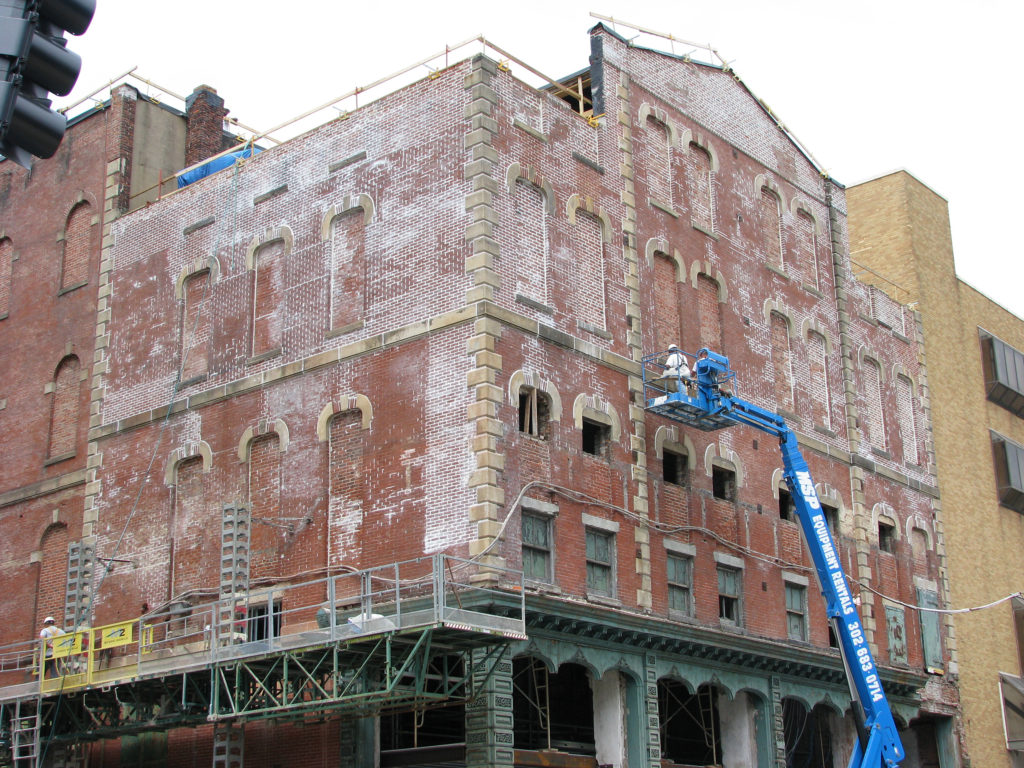
Mortar Manufacturers and Mortar Products
Cathedral Stone Products, Inc. Mortars and Grouts
Pointing mortar is one of fifteen categories of Jahn Restoration Mortars and grouts offered by Cathedral Stone. The others are for mica, stucco, plaster, limestone, sandstone, brownstone, terra cotta, brick, granite, bluestone, marble, poured and precast concrete, casting, anchor setting and injection grouts. Color matching service is provided. Training is also offered and some of the products are only sold to certified installers.
Rosendale Natural Cement Products from Edison Coatings
Edison Coatings has eight Rosedale products for tuckpointing, injection, patching, stucco and other applications which come in various grades and can be custom matched. Their additives / admixtures increase material quality and properties and reduce productions time. This June 2018 article in Design + Durability magazine: Repointing Shortcuts Can Cause Coating Failures, but New Mortar System Offers Relief, by Edison’s founder, Michael Edison, explains how their ICE 9 RL Mortar Admixture, which imparts freeze-thaw and salt-scaling resistance to mortars, plasters and concretes, has also has been proven to be effective in reducing the need to keep mortar joints hydrated during cure. This benefit makes tuckpointing operations much less labor intensive by reducing, if not eliminating, the need to replace joint mortar in multiple lifts. The article also gives fairly detailed information on the proper methods for mortar joint restoration.
Glen-Gery Brick
Glen-Gery was founded in 1890 in Reading, Pennsylvania. Today they are a manufacturer of many kinds of brick and other masonry materials, including mortar. Their web site is a resource for builders, specifiers and building owners. Informative articles, manuals and tools are available on mortar color, brick shapes, brickwork details, and many other subjects.
Mapei
Nawkaw “Main Street Restoration” Services
Among the services Nawkaw offers is mortar color matching and custom stains for restoration projects.
Quikrete
Quikrete Type N Mortar
Quikrete Veneer Stone Polymer Modified Mortar
Exceeds ASTM C-270 for Type S mortar.

